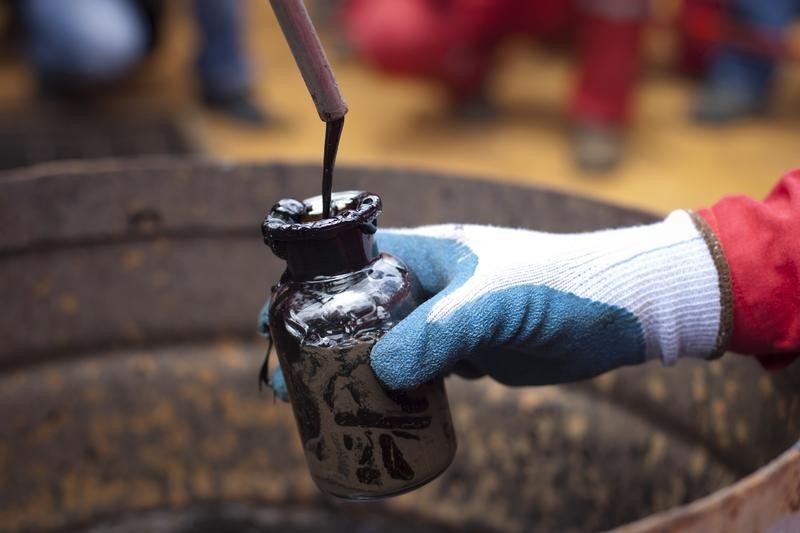Investing.com - Crude oil futures rebounded from the previous day's steep decline on Thursday, but gains were limited amid ongoing concerns over a global supply glut.
On the ICE Futures Exchange in London, Brent oil for September delivery tacked on 60 cents, or 1.04%, to trade at $57.72 a barrel during U.S. morning hours.
A day earlier, London-traded Brent prices lost $1.56, or 2.66%, to end at $57.12 amid concerns a resumption of Iranian oil exports will add to a global glut.
Iran reportedly hoards 30 million barrels of oil in its reserves ready for export. However, analysts largely estimate that Iranian crude exports could take several months to ramp up significantly.
Elsewhere, on the New York Mercantile Exchange, crude oil for August delivery rose 44 cents, or 0.86%, to trade at $51.84 a barrel.
On Wednesday, Nymex oil futures tumbled $1.63, or 3.07%, to close at $51.41 following the release of disappointing weekly data on U.S. oil inventories.
Total crude oil inventories fell by 4.3 million barrels last week to 461.4 million, according to the U.S. Energy Information Administration. Market analysts' expected a crude-stock fall of 1.2 million, while the American Petroleum Institute reported a decline of 7.3 million barrels.
Supplies at Cushing, Oklahoma, the key delivery point for Nymex crude, increased by 438,000 barrels last week, above forecasts for an increase of 268,000 barrels.
New York-traded oil futures have been under heavy pressure in recent weeks as worries over high domestic U.S. oil production weighed.
According to industry research group Baker Hughes (NYSE:BHI), the number of rigs drilling for oil in the U.S. rose by five last week to 645, marking the second straight week of gains after 29 weeks of declines.
The spread between the Brent and the WTI crude contracts stood at $5.88 a barrel, compared to $5.71 by close of trade on Wednesday.
Market sentiment improved after Greece's parliament passed austerity measures demanded by the country’s creditors in order to secure a third bailout package.
The reform plan was approved with 229 votes in the 300-seat chamber, despite dozens of hardliners in the ruling Syriza party opposing the package, raising doubts over the future of Prime Minister Alexis Tsipras' government.
Meanwhile, officials in Brussels agreed in principle to provide a €7 billion bridge loan to keep Greece afloat until the new bailout can be finalized.
